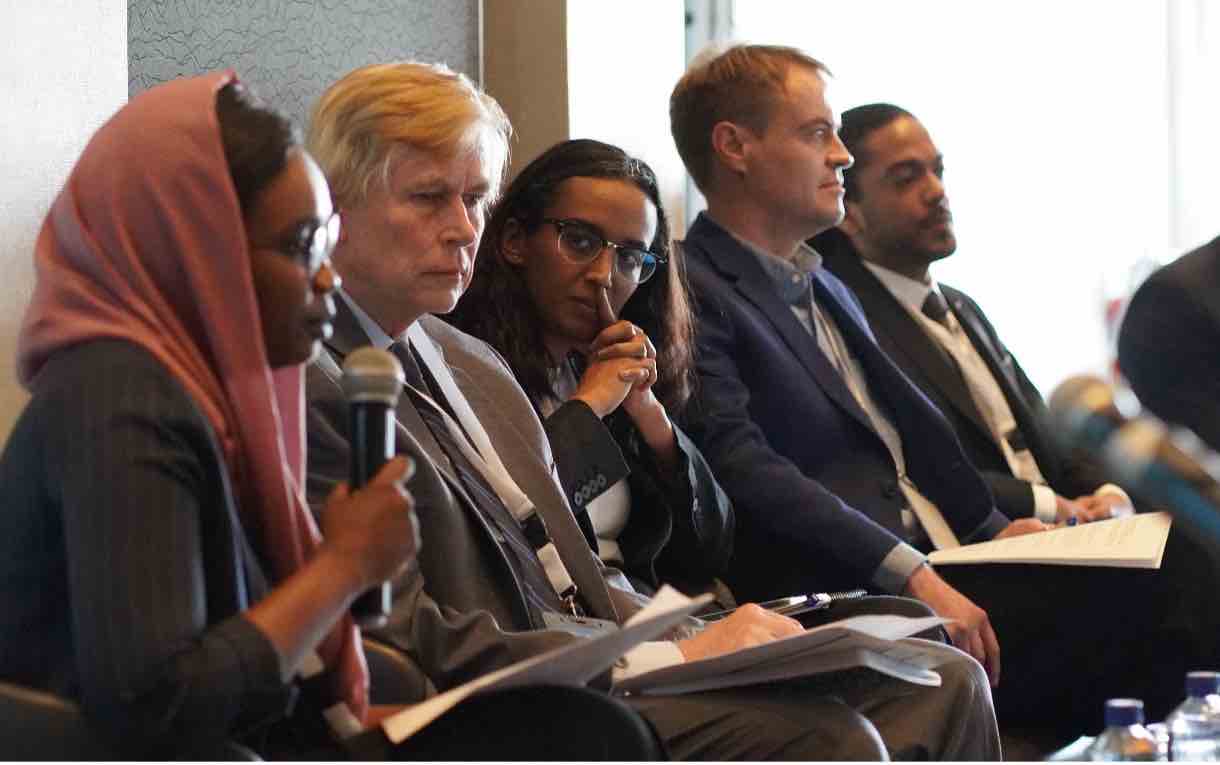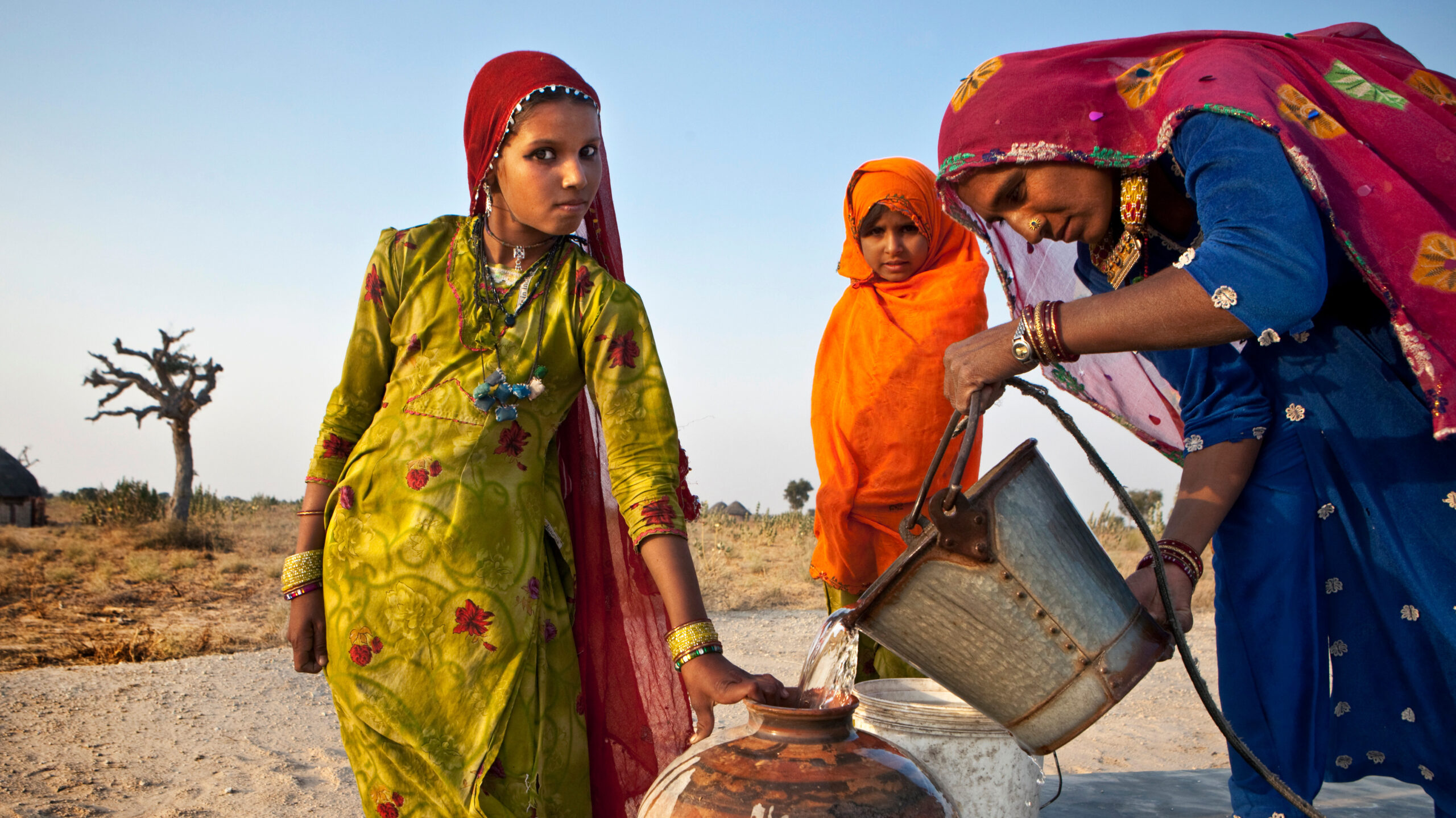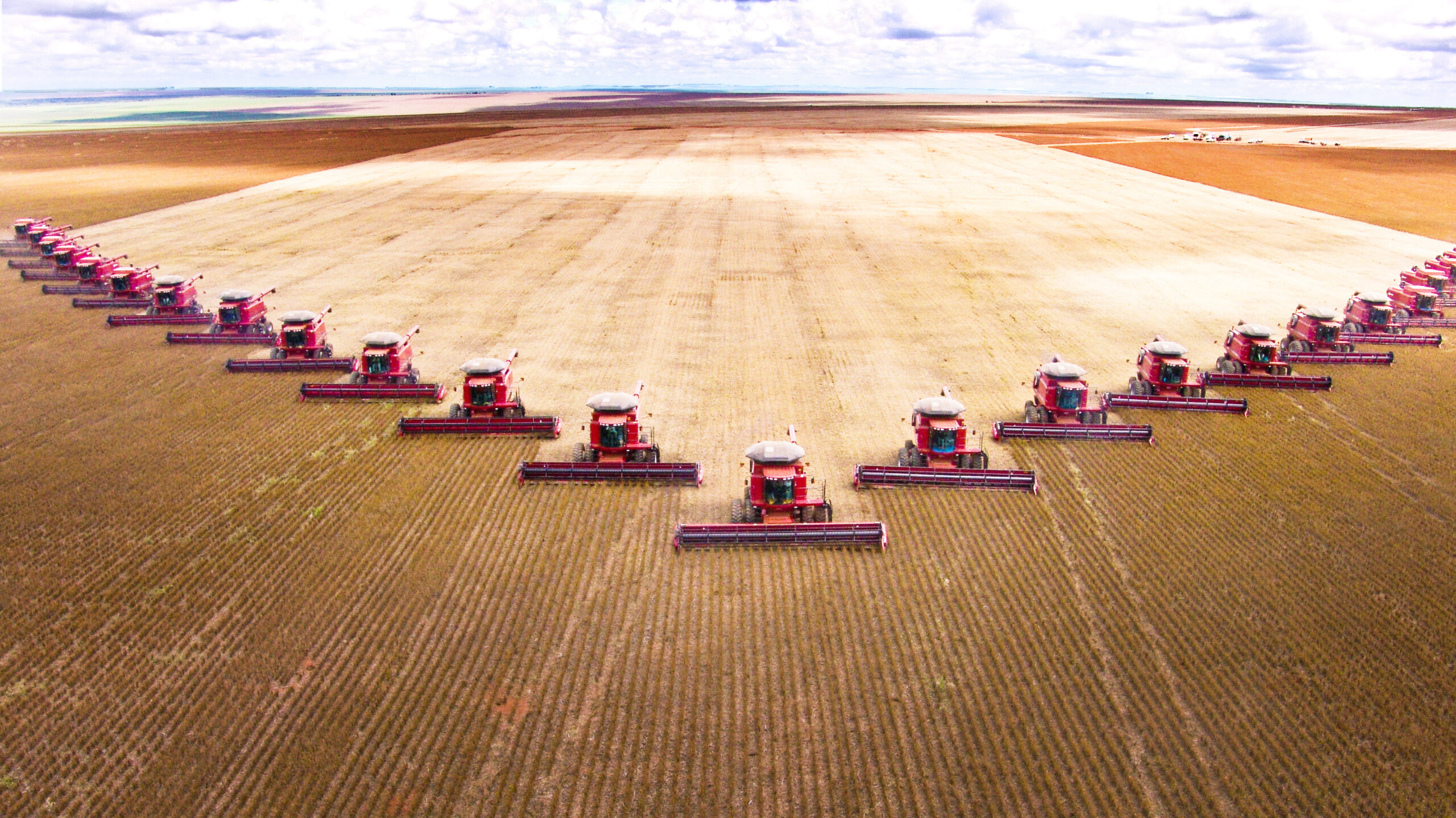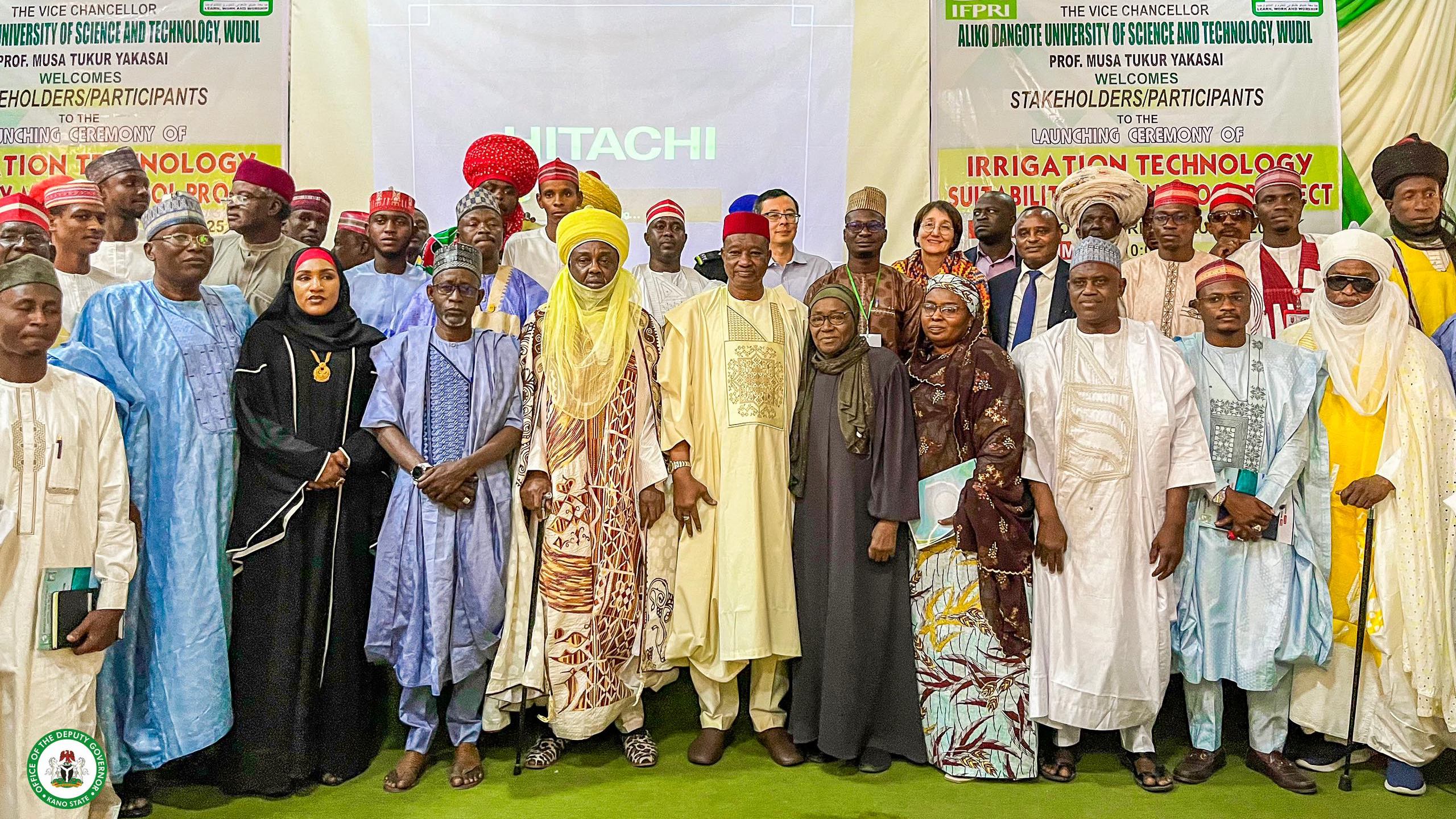Translation option:
Since the onset of civil war in April 2023, millions of people in Sudan have suffered from loss of livelihoods, destruction of infrastructure, and disruption of essential services. With the war still underway, Sudan is facing the world’s largest displacement crisis—with 6.5 million displaced people internally and another 1.7 million driven into neighboring countries—and a surge in acute food insecurity, soaring poverty levels, and extensive losses in income, employment, and productive assets.
To provide a forum for sharing of empirical evidence on this situation and to explore options going forward, IFPRI and the United Nations Development Programme (UNDP), organized a conference titled Navigating Sudan’s Conflict on March 5 in Nairobi, Kenya. The event brought together a diverse group of stakeholders, including diplomats, scholars, development and humanitarian experts, civil society representatives, private sector leaders, and policymakers and experts. They discussed insights from recent comprehensive micro and macro assessments, household surveys, and programmatic interventions. Special attention was devoted to pivotal concerns such as food security, humanitarian support (both cash and in-kind), and the identification and implementation of strategies to address the conflict’s impacts and to strengthen the resilience of the Sudanese people.
Following opening remarks by Paul Dorosh (Director, IFPRI Development Strategies and Governance Unit), Thair Shraideh (UNDP Sudan Country Resident Representative), and Loren Stoddard (Acting Mission Director, USAID Sudan), Khalid Siddig (IFPRI Senior Research Fellow and Leader of the Sudan Strategy Support Program (SSSP)) said that the SSSP has been able to continue collecting data and providing analyses since the onset of the conflict through telephone surveys and other mechanisms and will continue to support bridging the gap between research and humanitarian and development interventions. Such research efforts are key in crafting timely interventions and bridging the gap between academic inquiry and practical initiatives, he said.
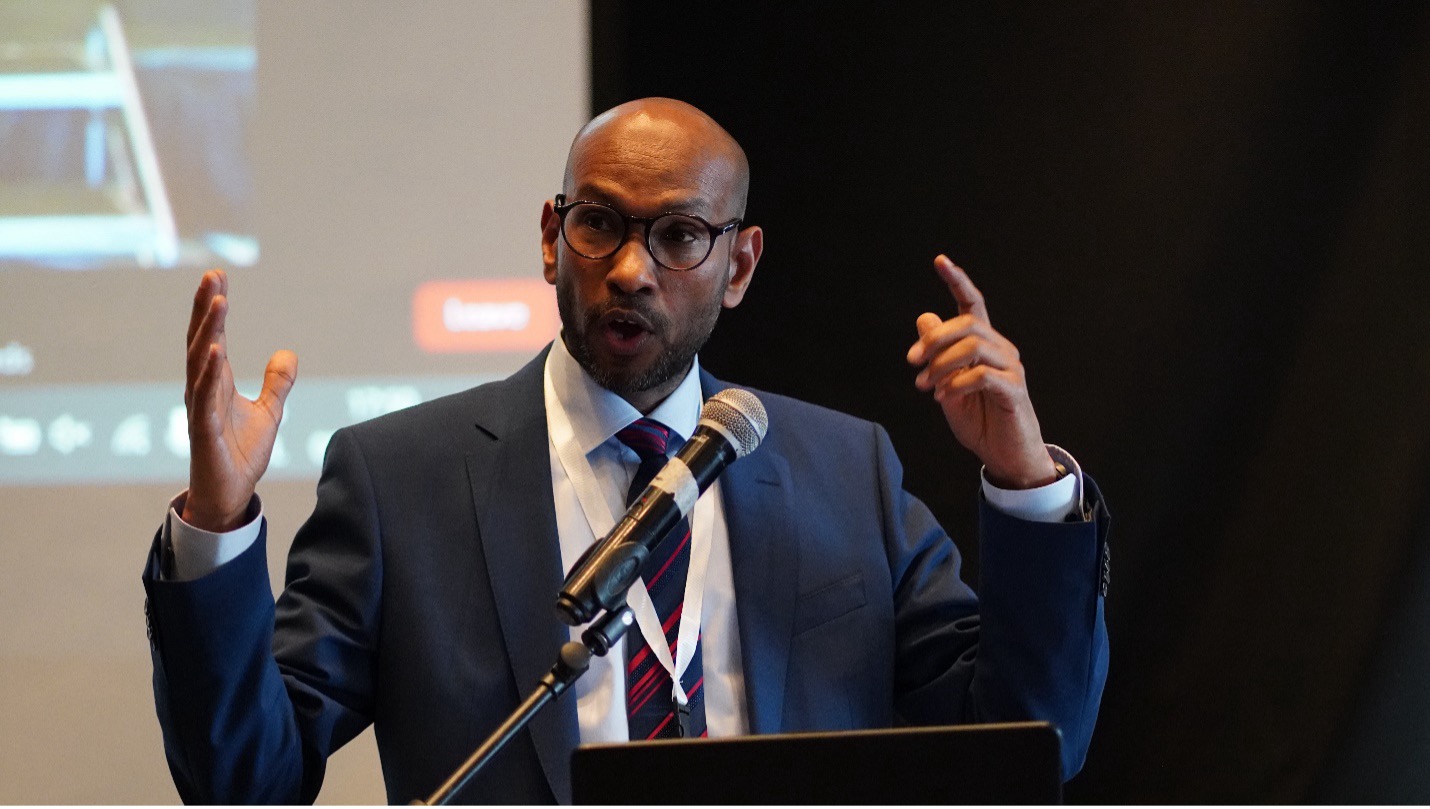
Chris Daileader/IFPRI
Khalid Siddig, leader of IFPRI’s Sudan Strategy Support Program, speaks on impacts of the conflict.
Research session: Implications of the conflict—from micro to macro levels
Hala Abushama, IFPRI Research Assistant, described the displacement, economic decline, and operational challenges faced by food processing firms. According to an IFPRI survey, 28% of farmers in Sudan have been displaced because of the conflict and 53% of food processing firms are not operating. An IFPRI model projected a 48 percentage point decline in GDP by December 2023. These studies have deployed mixed methodologies incorporating quantitative and qualitative data from firms, farmers, key informants, and households, alongside economy-wide models and satellite imagery.
Vito Intini, UNDP Regional Lead Economist, offered fresh perspectives on monitoring economic activity in conflict zones with innovative methodologies, including satellite imagery and nitrogen dioxide (NO2) emissions tracking.
Amid significant downturns in agricultural production, the food security situation is dire, said Fredrik Svensson, WFP Vulnerability Analysis and Mapping Officer. He showed that Sudan’s rural households are more likely to face acute food insecurity, with estimated planted area15% lower than five-year average, a 24% decline in sorghum production, and a 50% decline in millet production.
Figure 1
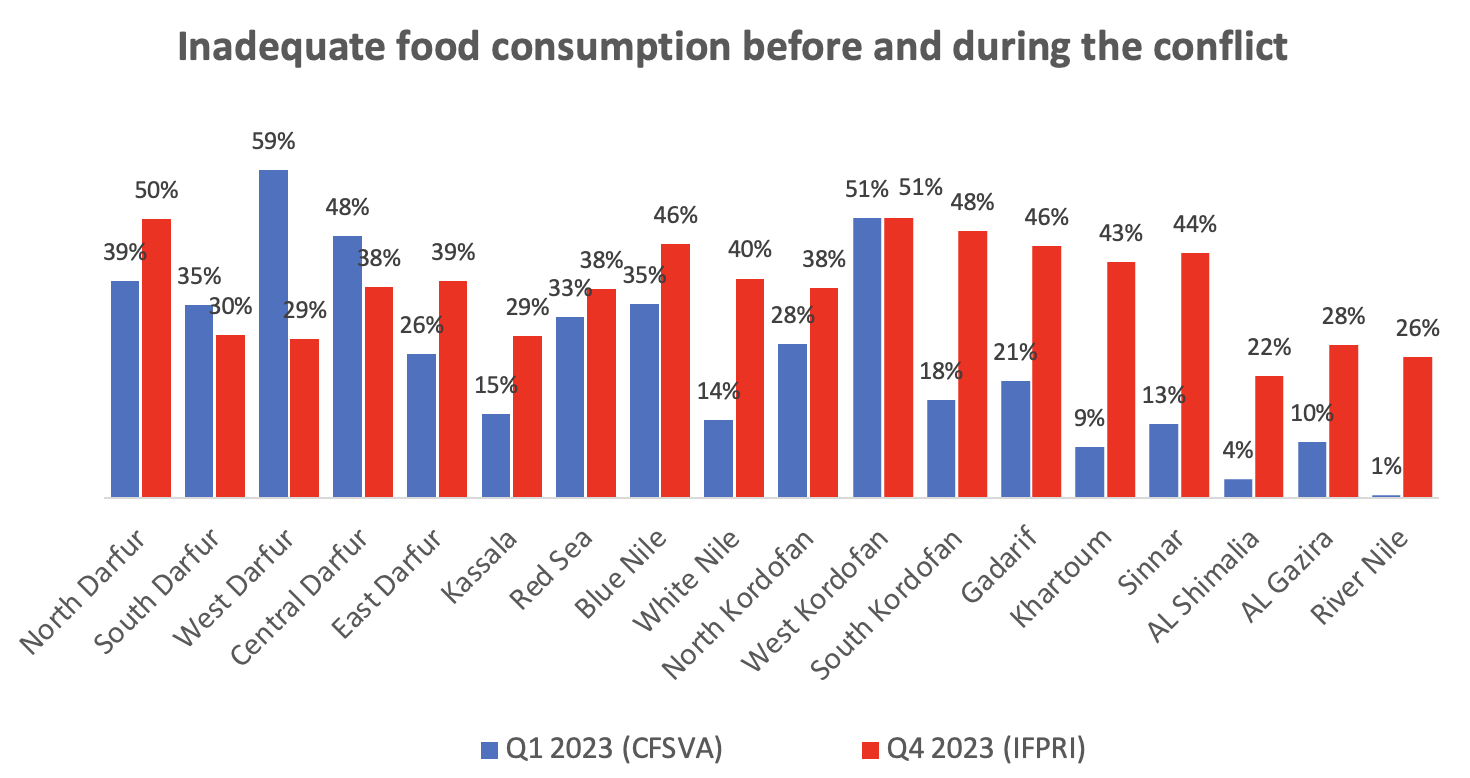
Source: IFPRI
Panel: Development interventions and implementation in times of conflict
This discussion focused on critical themes of early warning systems, seed distribution, cash and in-kind transfers, agricultural support programs, and the weaving together of health and education services within the existing support structures and approaches in Sudan, against the backdrop of ongoing conflict. Moderated by Karin Ruf, Senior Economic Advisor, UNDP Sudan, the panel featured experts including Adam Yao, FAO Deputy Representative in Sudan; Billy Mwiinga, WFP Representative in Sudan; Slobodan Tadic, UNDP Senior Crisis Coordinator; Ruben Vellenga, Partnerships and Resource Mobilization Manager, UNICEF; and Mohamed Abdelmomen, Country Representative for the UN Industrial Development Organization (UNIDO) in Sudan. Speakers explored the pivotal role of both detailed micro-level analyses and overarching macro-level insights in crisis management and humanitarian aid. They underscored the vital need for seamless coordination and collaboration across various institutions and organizations to enhance the efficacy of humanitarian efforts.
Research session: Building resilience and support mechanisms
Farmers and communities in Sudan are in desperate need of strategies to help them withstand the the conflict’s adversities. Oliver Kirui, IFPRI Research Fellow, examined the impacts of conflict-induced shocks on rural households and various coping strategies and factors that enhance resilience, setting the stage for an in-depth exploration of how communities can better withstand crises. Survey evidence showed that more than half of Sudan’s rural population has been hit with shocks—especially conflict-related—yet most households have yet to receive any support. Youssef Chaitani, Project Coordinator with the UN Economic and Social Commission for Western Asia (ESCWA) highlighted the political economy of resilience building, explaining how the development of governance systems plays a crucial role in assessing vulnerabilities and forging robust resilience mechanisms. Chaitani underscored the critical need for national and local interventions tailored to align with communal and shared objectives, aiming to fortify collective resilience during tumultuous times by tackling domestic challenges head-on.
WFP’s Mwiinga shared insights into the humanitarian-development-peace nexus, a framework pivotal for resilience building activities that his organization has been championing in Sudan since the conflict’s outbreak. In that time frame, the organization has reached 1.3 million people across 14 of Sudan’s 18 states with transformative resilience-building initiatives, he noted. Additionally, in the Darfur region alone, WFP has supported 38,500 beneficiaries with agricultural inputs and livelihood training, illustrating a concrete impact on the ground. Closing the session, Moses Siambi, Regional Representative for Africa with the International Maize and Wheat Improvement Center (CIMMYT) presented the USAID-funded Sustainable Agrifood Systems Approach for Sudan (SASAS) program. SASAS is empowering farmers through access to technology, inputs, and tailored training during conflict, he said, showcasing the program’s strategic interventions in select Sudanese states
Research session: Agricultural productivity, market access, and international support
This final research session delved into the pivotal role of market functionality and access amid conflict conditions, focusing on the challenges and opportunities for suppliers and consumers alike. Mosab Ahmed, Senior Research Assistant, IFPRI-Sudan, presented data on market access, pricing, and employment based on comprehensive data from nationwide surveys targeting rural households and farmers. These data show the substantial hurdles smallholder farmers and rural families have faced due to the conflict—including escalated prices and diminished market access, which notably hindered their preparations for the planting season. These market disruptions were particularly pronounced among female farmers and households led by women, leading to significant labor market complications and a staggering loss of income for 21% of rural households as a direct result of the conflict.
UNDP’s Intini explored the conflict’s regional ramifications through a variety of analytical lenses, including an economy-wide assessment. Employing a global modeling framework, Intini detailed the conflict’s adverse effects on neighboring countries, projecting financial losses amounting to $9.6 billion in 2023 and $9.9 billion in 2024 for Sudan, South Sudan, Chad, Egypt, and Ethiopia under a hypothetical “peace scenario.” His findings also pointed to an intensification of income inequality post-conflict, as indicated by a Gini index increase from 52% to 56%.
IFPRI’s Siddig presented results of model simulations of the impacts of the conflict on economic outcomes, poverty, and undernourishment, along with scenarios of potential recovery strategies for Sudan. Beginning with the World Bank’s conservative estimates on the war’s economic impact, Siddig’s analysis indicated that, without intervention, poverty and undernourishment could afflict up to 4 million and 2 million individuals, respectively, by 2028. However, measures aimed at restoring agricultural productivity to pre-conflict levels could halve these figures. Furthermore, the resumption of external aid, exemplified by a hypothetical $1 billion in cash transfers, was shown to offer immediate relief. In contrast, the reconstruction of damaged infrastructure, though slower, was identified as a more enduring solution for reviving economic growth and mitigating poverty and undernourishment.
Figure 2
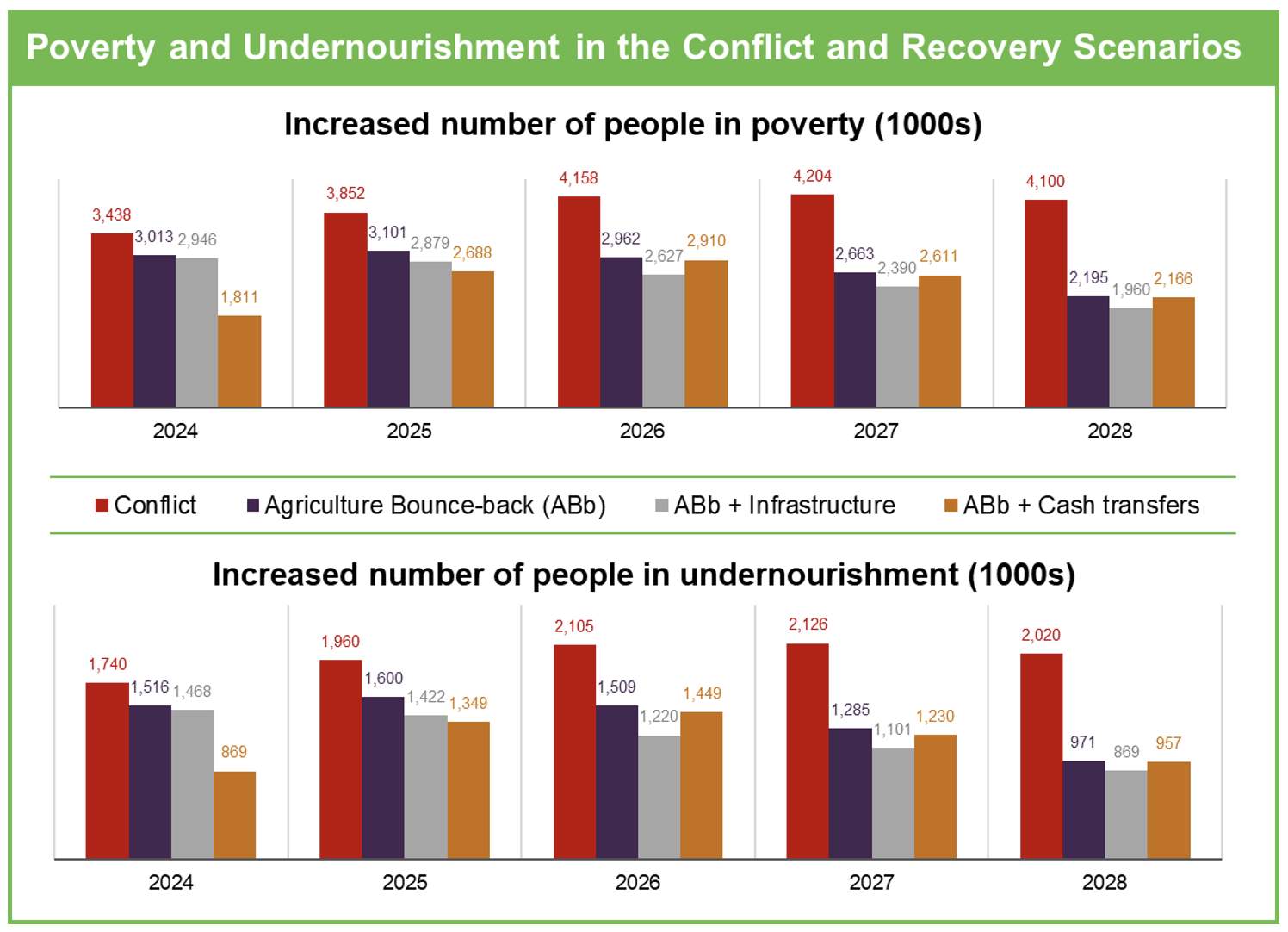
Source: IFPRI
In summary, this conference was crafted to cultivate a cooperative atmosphere, enabling participants from various sectors to share insights, strategies, and in-depth research findings. The aim was to collectively address the multifaceted crisis currently unfolding in Sudan. Through robust dialogue and exchange, the conference achieved its goal of stimulating discussion around Sudan’s complex emergencies, fostering partnerships, and coordinating efforts among diverse stakeholders to bring meaningful relief to the people of Sudan.
Hala Abushama is a Research Assistant with IFPRI’s Development and Governance Strategies (DSG) Unit, based in Khartoum, Sudan; Khalid Siddig is a DSG Senior Research Fellow and Leader of IFPRI’s Sudan Strategy Support Program; Oliver Kirui is a DSG Research Fellow based in Khartoum; Mosab Ahmed is a DSG Senior Research Assistant based in Khartoum; Paul Dorosh is DSG Director.




